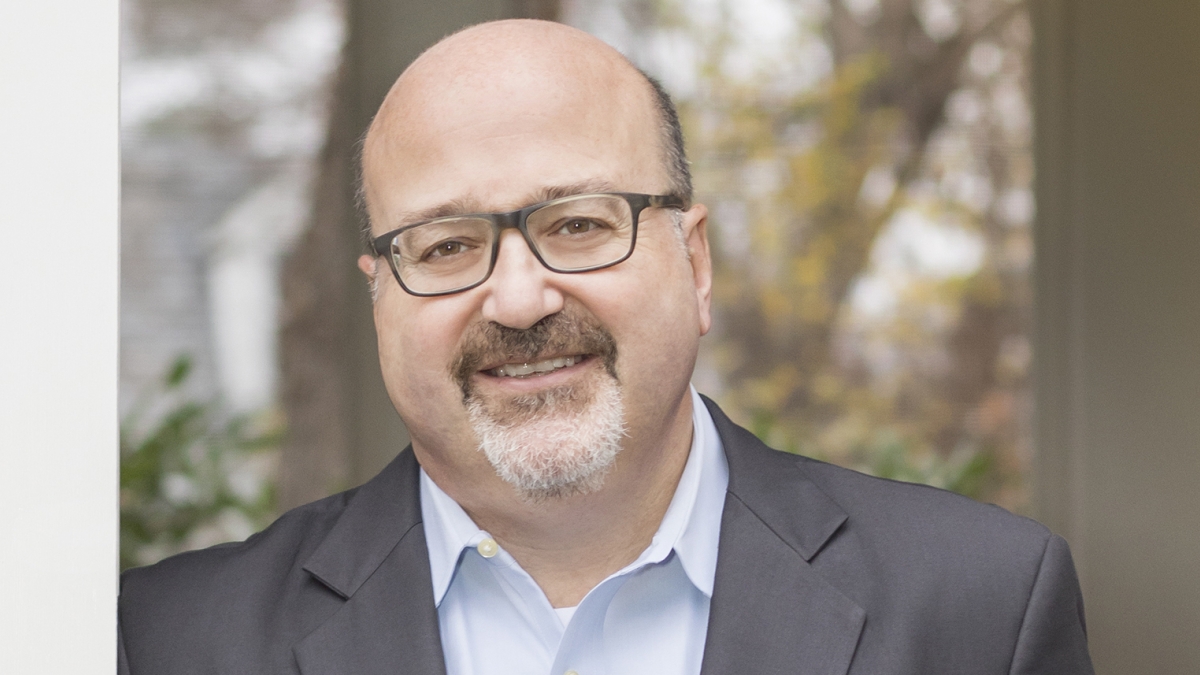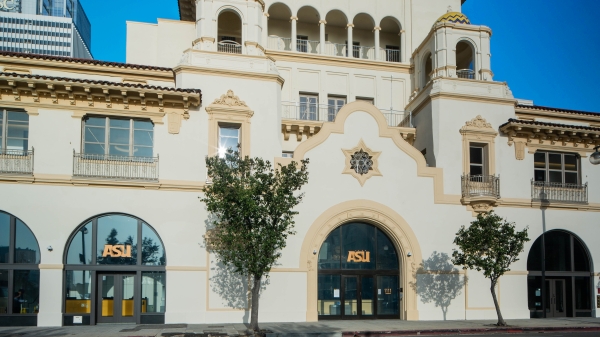ASU lecture to explore overlap between humanitarianism, human rights
Scholar and author Michael Barnett to speak as part of 'Conversations at the Center' series

Scholar and author Michael Barnett will lecture at ASU on April 4.
Over the past 20 years, the idea of human rights has become central in discussions about humanitarianism. But this was not always the case, and aid agencies today disagree about whether this trend has had a positive impact on helping those in great need.
Scholar and author Michael Barnett is interested in why this is the case, a question he will address in his free public lecture titled “Human Rights and Humanitarianism: Distinctions With or Without a Difference?”
The lecture will be held at the Center for the Study of Religion and Conflict at noon Monday, April 4, in West Hall room 135 on ASU’s Tempe campus.
As political debates intensify over how to resolve the refugee crisis in Europe, the Middle East and North Africa, discussions about human rights and humanitarianism are also intensifying.
“Some humanitarian agencies have embraced a ‘rights-based’ orientation. Others, though, have exhibited considerable anxiety, worrying that human rights might corrupt humanitarianism,” said Barnett. “Why the anxiety? What is at stake?”
The author of "Empire of Humanity: A History of Humanitarianism," Barnett is a leading expert on the history, culture and politics of humanitarianism.
“Many people don’t think very deeply about humanitarianism. They tend to think that it’s about helping people, and what could be objectionable about that?” said John Carlson, acting director of the Center for the Study of Religion and Conflict, associate professor of religious studies and co-director of the Luce Project on Religion and Global Citizenship.
“The reality, though, is that many critics object firmly to humanitarianism, which, like human rights, they see as an instrument of power the West has imposed upon the vulnerable and powerless. Michael Barnett’s research opens up this vexing debate and cuts between the two sides to show humanitarianism to be — in his words — a ‘morally complicated creature.’ His talk promises to open our eyes to urgent questions about how to — and perhaps how not to — serve those in need throughout the world.”
Barnett is University Professor of International Affairs and Political Science at George Washington University’s Elliott School of International Affairs. He is also a former MacArthur Fellow (also known as the “genius grant”) and an award-winning author.
His 1992 book "Confronting the Costs of Wars" was named Best Book by the International Studies Association. His "Rules of the World" (2004) was named Best Book by the Academic Council on the United Nations System and also by the International Studies Association. His latest book, "The Star and the Stripes: A History of the Foreign Policies of American Jews," was released earlier this month.
Barnett also has received fellowships and grants from the Mellon Foundation, the Luce Foundation, United States Institute on Peace, the Smith Richardson Foundation and the Council on Foreign Relations.
His visit is sponsored by the Center for the Study of Religion and Conflict through its Luce Project on Religion and Global Citizenship and a related initiative on religion and global health.
“Michael’s work has been at the vanguard of rethinking the ‘human’ in humanism and humanitarianism,” said Gaymon Bennett, assistant professor of religious studies, and a member of both center research projects.
“As a result, he has helped us reimagine and draw together problems as seemingly distinct as policy fights over political refugees, and the shifting boundary between the sacred and the secular in international public health.”
The lecture is part of the Center for the Study of Religion and Conflict’s “Conversations at the Center” speaker series. Past speakers in the series have included Anand Gopal, Elizabeth Shakman Hurd and Ira Chernus.
For more information and to register for the lecture, see the event page.
The Center for the Study of Religion and Conflict is an interdisciplinary research unit of the College of Liberal Arts and Sciences that examines the role of religion as a driving force in human affairs.
More Law, journalism and politics

School of Politics and Global Studies director's new book explores mass violence
Why do people commit atrocities and why are certain groups, including religious and ethnic, more vulnerable to large-scale…

ASU faculty contributing to improvement of Wikipedia
Many academics have a love-hate relationship with Wikipedia. While the website has information about almost anything you can…

ASU Law students gain vital experience through Los Angeles location
Students at the Sandra Day O’Connor College of Law at Arizona State University may be concentrated in the school’s downtown…